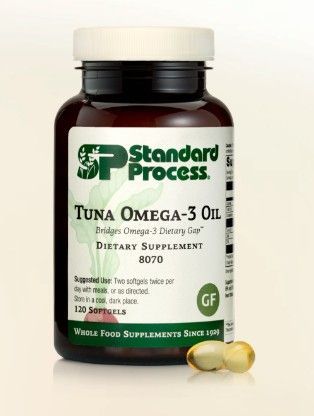Hormone Imbalance and Stress
Stress is one of the most common disruptors I observe in hormone muscle testing, and cortisol is typically the first indicator. In this blog, I’ll walk you through how chronic stress affects cortisol levels, what adrenal burnout looks like, and how we help patients naturally rebalance their hormones.
-Dr. Alicia Armitstead
The Most Common Form of Hormone Imbalance
You've probably heard of cortisol, often referred to as the 'stress hormone'. While it is true that cortisol has a primary influence on stress, it also supports a wide variety of other physiological roles. It is responsible for three significant actions that keep you alive: raising blood sugar, increasing blood pressure, and regulating inflammation.
Stress. It's everywhere.
The shoulder-tensing kind of stress that leaves you wired but tired, and taunts you to reach for that pick-me-up of sugar or coffee. Then comes the guilt because you know you aren't handling it appropriately. That's when we are stressed about our stress, and that doesn't help! So, let's take a look at the hormone cortisol as it relates to the stress response to get a clearer understanding of the biochemical state of the body when we experience hyperarousal (that is, the scientific term for what we might so very eloquently call "freaking out") and explore how we can return the body to a state of balance and stability.
What is Cortisol?
To fully understand stress management and discover a place of balance without daily stress, it is essential to comprehend cortisol's dynamic influence on our everyday functioning. At the most basic level, cortisol is a hormone- a chemical substance that acts as a messenger to direct the activity of specific cells or organs in the body. You've probably heard of cortisol being called "the stress hormone," but it is also responsible for three primary mechanisms that help keep the body in a state of balance, or homeostasis: raising blood sugar levels, increasing blood pressure, and regulating inflammation. Through these mechanisms, cortisol essentially influences nearly all that we do, and is directly responsible for modulating:
- Digestion
- Circulation
- Sleep/wake patterns
- Physical activity
- Sexual response
- Behavior and mood
So, with this prestigious list of roles and responsibilities, why is it that experts suggest that cortisol imbalance is the most common form of hormone imbalance in the modern world?
Stress, The HPA Axis, and Cortisol
Cortisol is released by the cortex (or outer layer) of your adrenal glands. It is naturally secreted in an ebb and flow rhythm that repeats daily. Ideally, cortisol is highest in the morning to help us wake up in a productive, alert, and energetic manner. It then tapers throughout the day and evening, reaching its lowest point at night, when we are meant to be sleeping soundly, and at which point the soothing, anti-inflammatory hormone melatonin takes over.
In addition to this daily cycle that helps us wake up in the morning and go to sleep at night, cortisol is released as part of the natural human stress response. In threatening situations, a surge of cortisol primes the body to react swiftly and appropriately. This very primal system is called the hypothalamic-pituitary-adrenal axis. Whenever a stressor is perceived, the hypothalamus (a gland in the brain) signals to the pituitary (a hormone gland in the brain) that something is up. The pituitary then sends a chemical alarm via the hormone ACTH, signaling the adrenals (the glands located atop the kidneys) to release a burst of cortisol and other hormones, such as adrenaline, preparing the body for "fight or flight" mode.
This is where cortisol's three primary mechanisms really come in handy: the surge increases glucose to the muscles, allowing one to fight or run, and blood pressure is raised to ensure a plentiful supply of fresh oxygen to the brain, enabling one to think clearly. Simultaneously, non-immediate functions such as digestion, sexual arousal, and immune system reactions are temporarily suppressed, allowing energy to flow more steadily towards the vital functions that sustain life. When the threat subsides, the alarm in the hypothalamus is shut off, and the body is restored to a state of harmony, recovering and awaiting the following alert.
Adrenal Burnout
This method is particularly effective in cases of accidents or medical emergencies. Yet, unfortunately, the HPA Axis responds not only to those acute stressors, but also to those that are anticipated and perceived- our looming worries and fears. The HPA system is helpless in differentiating between psychosocial stressors like getting stuck in traffic or planning a dinner party, and physical threats such as being in a burning building. Therefore, if we aren't careful, our daily life can be filled with stressors, and worry can be rampant, so the HPA alarm is almost constantly stuck in the glowing red ON position.
Cortisol levels surge in an unruly and destructive manner at bizarre times of the day and night, and suddenly, small tasks such as packing a lunch or responding to an email morph into treacherous, overwhelming threats that we feel like we can't handle.
Over time, the body cannot compensate for this hormonal instability, and we begin to burn out. The adrenals cannot keep up with the constant demand to secrete cortisol, and our systems slowly falter and shut down under such excessive demands. This phenomenon is often called adrenal fatigue and is coupled with the experience of such troublesome conditions as heart disease, sleep problems, digestive issues, depression, memory impairment, excessive weight gain, and worsening skin conditions.
Rebalancing Cortisol
As much as we might close our eyes tightly and try to resist and control it, stress is an inherent part of life. However, through adequate nourishment and care, we can put the body's biochemical systems back on track, shifting the way we relate to stress so that it does not shatter our everyday experience and stifle our creative expression. Building a nutrient-dense diet is essential for healing the adrenals, as is engaging in healthy fitness that includes adequate rest and recovery. That's why practitioners at Healing Arts work with the biofeedback from your body to devise a detailed diet and lifestyle plan that works for you. Here are some of the things that we test for to help support and rebuild the adrenal glands.
Fish Oil
Extensive research has shown that a high-quality fish oil, such as cod liver oil, tuna oil, or krill oil, rich in omega-3 fatty acids and fat-soluble vitamins, can effectively lower cortisol levels that are increased by mental stress. Fish oil, especially when coupled with a source of vitamin K2, also provides the foundational nutrients that are beneficial in replenishing depleted hormonal stores and adrenal gland reserves.
This combination helps calm the nervous system and restore balance to the HPA axis, which is often overstimulated in individuals who are chronically stressed. Over time, consistent use of high-quality fish oil can support more stable energy levels, improved mood, and better resilience to daily stressors.
Deep Breathing
Due to our desk-sitting habits and stress-driven culture, many of us have altered the musculature of our natural posture and become rapid, shallow chest breathers. This breathing habit compromises oxygen flow, weakens the abdominal muscles, causes adrenal strain, compresses organs, creates lower back pain, and stimulates the release of adrenaline and cortisol. Learning how to breathe correctly can neutralize this effect and turn off the HPA alarm.
Magnesium
Numerous studies have found that the frequent release of adrenaline and cortisol, which is involved in an unresolved stress response, is strongly correlated with decreased magnesium levels. What's worse? It all works in a vicious cycle: a lack of magnesium can cause anxiety, sleep disturbance, and depression.
B Vitamins
According to research, B vitamins, particularly Vitamin B5 (pantethine), work to reduce the hypersecretion of cortisol. Paradoxically, excess cortisol depletes B vitamins from the system; therefore, people with high stress levels tend to be highly deficient in these essential vitamins. The B vitamins are most effective when taken together; therefore, consuming foods rich in all B vitamins, such as liver, or taking high-quality B vitamin supplements, is crucial for restoring energy levels.
Earthing
Studies have shown that practicing grounding is one of the most effective ways to restore natural hormonal rhythms during sleep, resynchronizing cortisol to its innate rhythm. Earthing, or grounding, is the practice of reconnecting with the earth's healing energy by allowing bare skin to come into direct contact with the earth's surface. This can be achieved by walking barefoot outside on dirt or sand, swimming in lakes or the ocean, or using exquisitely designed earthing products that bring the earth's energy into the home through a grounded electrical system or a grounding rod.
Summary
Cortisol, often called the "stress hormone," plays a vital role in regulating blood sugar, blood pressure, and inflammation—but chronic stress can throw this system into chaos. When daily stressors overstimulate the hypothalamic-pituitary-adrenal (HPA) axis, cortisol levels become erratic, leading to adrenal fatigue and a host of health issues like sleep problems, weight gain, and mood disorders. The article examines how lifestyle interventions—such as fish oil, magnesium, B vitamins, deep breathing, and grounding, which can help rebalance cortisol and restore hormonal balance. Healing Arts practitioners use biofeedback and personalized testing to guide patients toward adrenal recovery and long-term wellness.













